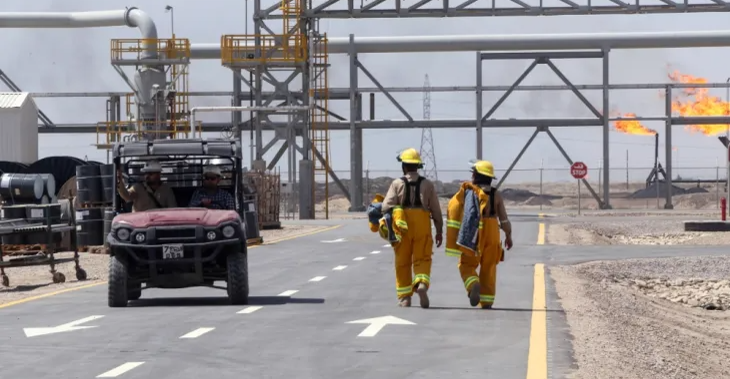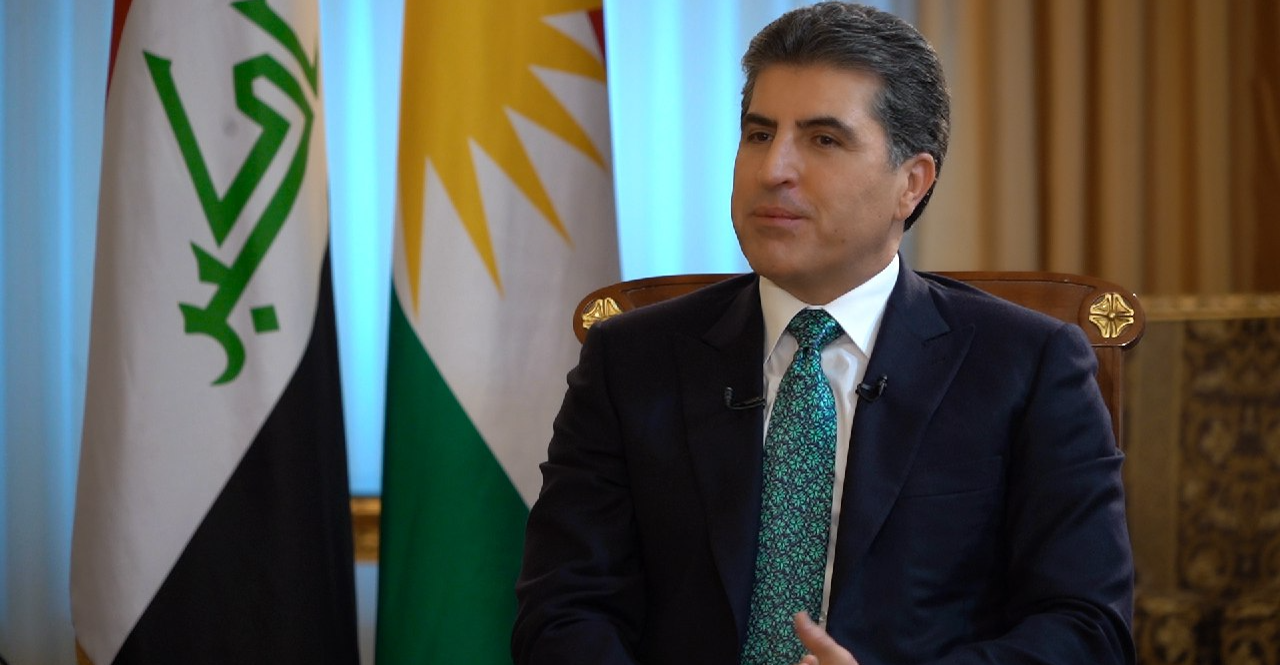Basra’s oil crisis: Foreign workers take Jobs, locals left behind

Shafaq News/ The city of Basra, Iraq’s economic hub, lies at the heartof a growing controversy in the global oil industry. Home to some of thelargest oil fields, Basra’s strategic position makes it crucial forinternational oil companies (IOCs). However, deep grievances are rising overwage disparities between local Iraqi workers and their foreign counterparts.
Oil Wealth Meets Wage Inequality
Basra contributes significantly to Iraq’s economy, but the wealthgenerated by its oil fields is not equally shared. While foreign workers in theoil sector earn salaries between $10,000 and $15,000 per month, Iraqisperforming similar roles typically make only $1,000 to $2,000. Local employeesrarely receive housing allowances, comprehensive healthcare, or retirementbenefits. This tenfold difference has led to growing frustration and protests.
Mahdi Al-Tamimi, the head of Basra’s Human Rights Office, highlightedthis issue, stating to Shafaq News, “It is unacceptable that local Iraqis, arepaid a fraction of what foreign workers earn. These companies must recognizetheir ethical responsibility to the communities from which they profit.”
Ali Al-Abadi, director of Iraq’s Centre in Basra criticized the heavyreliance on foreign labor, particularly since 2018. He also argued that foreignworkers are prioritized in high-paying roles while Iraqis are left inlower-paying positions. "The foreign workforce is being prioritized at theexpense of Iraqis, despite their qualifications."
Negative Role Of Foreign Oil Companies
International oil companies have faced backlash for perpetuating thiswage gap by bringing in foreign workers for technical roles while relegatinglocals to lower-paying jobs. Many Basrans accuse IOCs of prioritizing profitover fairness, with opaque hiring practices and limited integration of localtalent into senior roles.
Al-Abadi has been outspoken on this issue, stating, "Since 2018,the influx of foreign workers into high-paying roles has hindered thedevelopment of local expertise." His criticism focuses on the need forIOCs to hire and train Iraqis, enabling them to fill higher-payingpositions.
Moreover, he emphasized that the over-reliance on foreign labor stiflesIraq’s domestic workforce. "Iraqis are being denied opportunities thatshould be available to them in their own country," he asserted, callingfor policies to address this imbalance.
Nawfal Al-Mansouri, a member of the Taqeem Alliance in Basra’sProvincial Council, revealed that nearly 90,000 foreign workers are employed byoil companies in the province. “These workers collectively earn over half abillion dollars in monthly salaries,” Al-Mansouri stated.
Government Steps And Allegations Of Corruption
Mahdi Al-Tamimi, head of Basra's Human Rights Office called on Basra'sleadership to take decisive action, "The provincial government must makebold decisions. Central authorities will respond to strong local initiatives.We can save our youth from the social and economic challenges they face byopening employment windows for Iraqi workers in foreign companies andprotecting them from exploitation, including unjust dismissals."
In the same context, the Iraqi central government and the BasraProvincial Council have taken several steps to address the wage disparitiesbetween local workers and foreign employees in the oil sector, though theprogress has been slow.
1. Legislation andregulations:
• Local employment quotas:Regulations require foreign oil companies to prioritize hiring local workersfor non-specialized roles. However, enforcement is inconsistent, and foreignfirms still rely on expatriates for technical positions.
• Salary caps andadjustments: The government has occasionally pushed for salary caps for foreignworkers and adjustments for locals, but challenges remain due to the globalnature of the oil industry.
2. Skill development andtraining:
Partnerships with oil companies and training programs: Improving educationand vocational training tailored to the oil industry is crucial. Partnershipsbetween oil companies and educational institutions could create a pipeline ofqualified professionals, enabling Iraqis to take on roles traditionallyreserved for foreign workers.
3. Incentives for localworkers:
• Bonus and BenefitsPrograms: Local workers receive additional benefits, such as bonuses, housingallowances, and medical coverage, though not as extensive as foreign workers’benefits.
• Subsidies for LocalBusinesses: The Basra Council offers tax exemptions or subsidies to companieshiring local workers, encouraging more locals in higher-paying positions.
4. Public pressure and socialmovements:
• Protests and Advocacy:Local workers and activists have protested for better pay and employmentopportunities, pressuring both the government and companies to address theissue.
• Political Pressure: Basrapoliticians push for greater transparency and better salary regulations. Theseefforts are often clashing with the rampant corruption among certain Iraqipolitical elites. According to Ali Al-Abadi, director of Iraq’s Centre inBasra, the political interference by lawmakers, often exploiting the oil sectorfor their personal and political gains, exacerbates the crisis.
5. Taxation on expatriatesalaries:
The government has considered imposing higher taxes on expatriatesalaries to keep more wealth within the local economy.
6. Increasing oil revenues forlocal development:
The government aims to reinvest oil revenues into local infrastructureand public services, improving the economic environment and creating more localjob opportunities.
Despite these efforts, challenges persist. Foreign companies are stillattracting top global talent with higher salaries, while corruption andbureaucracy hinder effective policy implementation. Additionally, trainingprogress is slow, leaving foreign workers dominant in specialized, well-paidroles.





